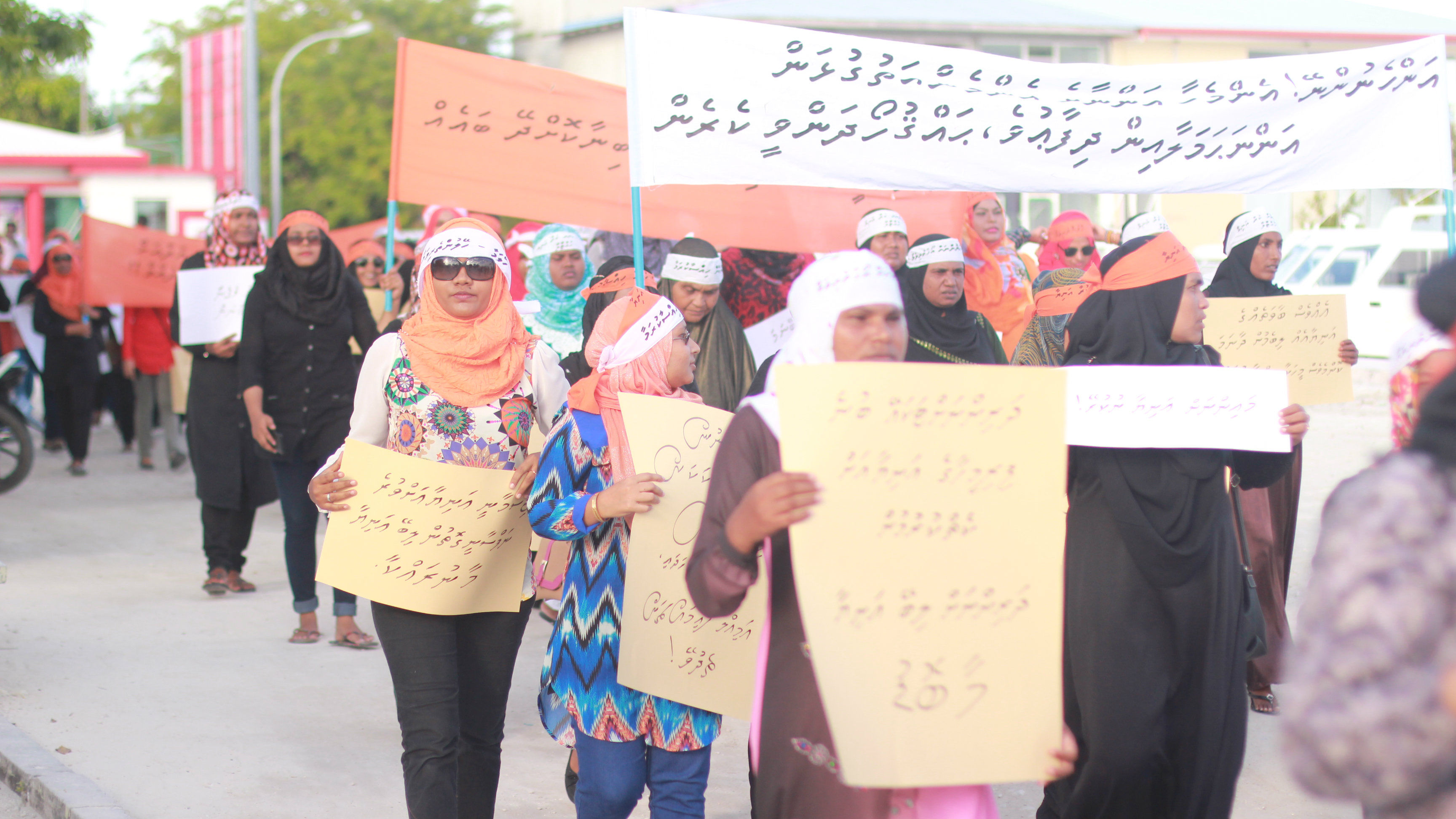The Violent Lives of Maldivian Women
A 35-year-old victim of marital rape from the island of Thinadhoo died last night while undergoing treatment for severe injuries. Why is violence against women so prevalent in an Islamic society and how can we prevent it? asks the Gender Advocacy Working Group.

29 Dec 2015, 09:00
Earlier this month, 35-year-old Samiya* (not her real name) left her home for the last time. From southern Gaaf Dhaal Thinadhoo, she traveled over 250 miles to Malé, where she sought the care of doctors: Her husband, she told them, had raped her, inflicting brutal injuries. She ended up in the intensive care unit battling for her life.
Over the following weeks, local newspapers tracked her health closely; on social media, Maldivians pleaded for blood donations to save her. Police arrested her husband. The women of Thinadhoo held a march in solidarity.
Samiya died last night.
She is not alone. Untold numbers of Maldivian women, living and departed, share her story.
Become a member
Get full access to our archive and personalise your experience.
Already a member?
Discussion
No comments yet. Be the first to share your thoughts!
No comments yet. Be the first to join the conversation!
Join the Conversation
Sign in to share your thoughts under an alias and take part in the discussion. Independent journalism thrives on open, respectful debate — your voice matters.




